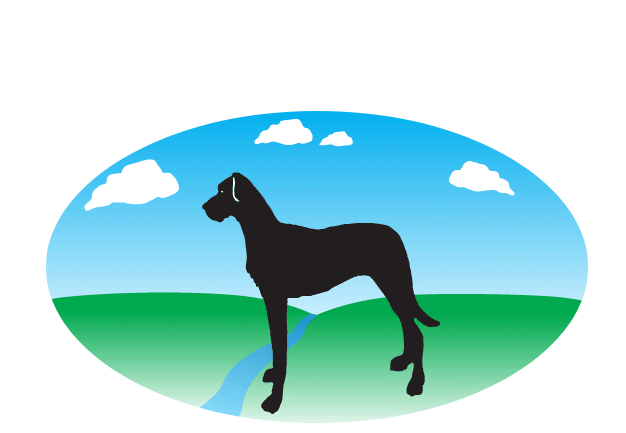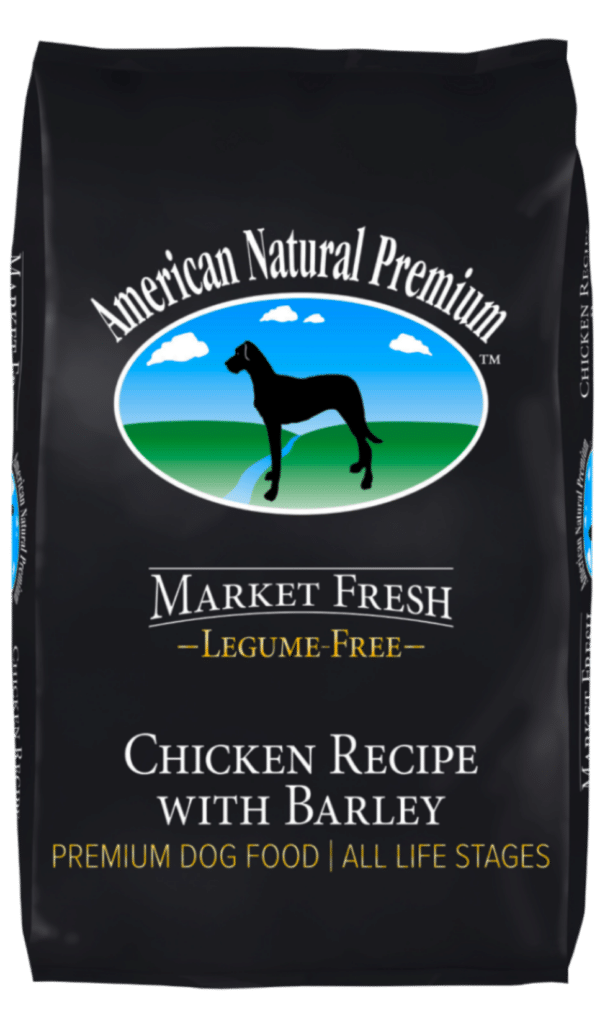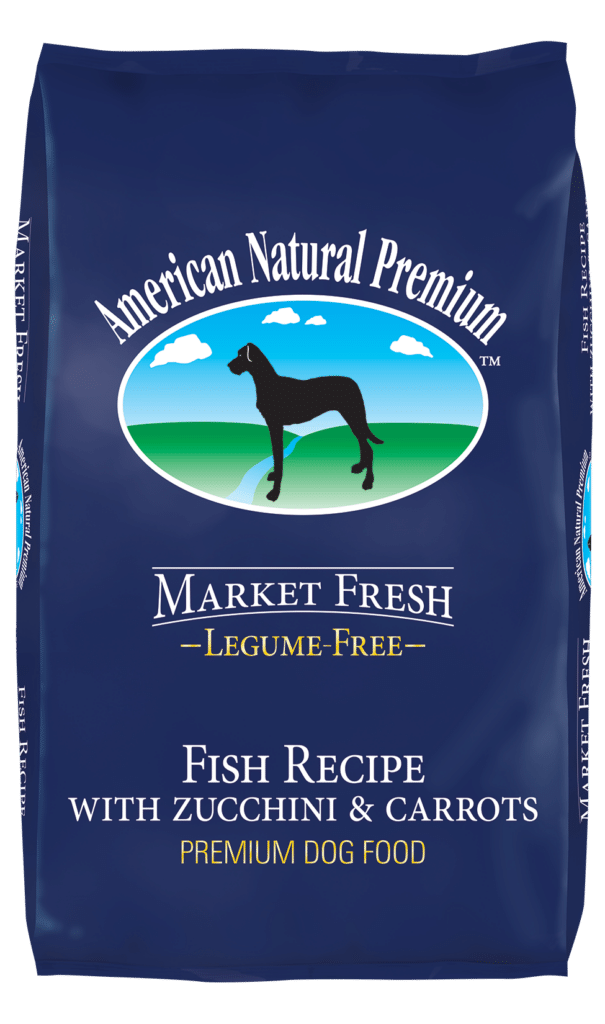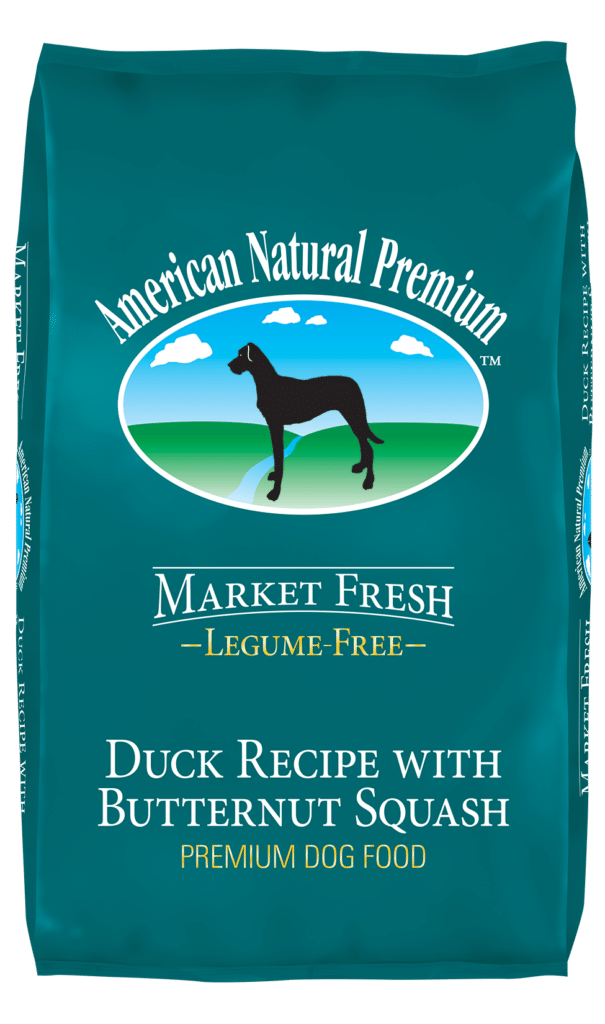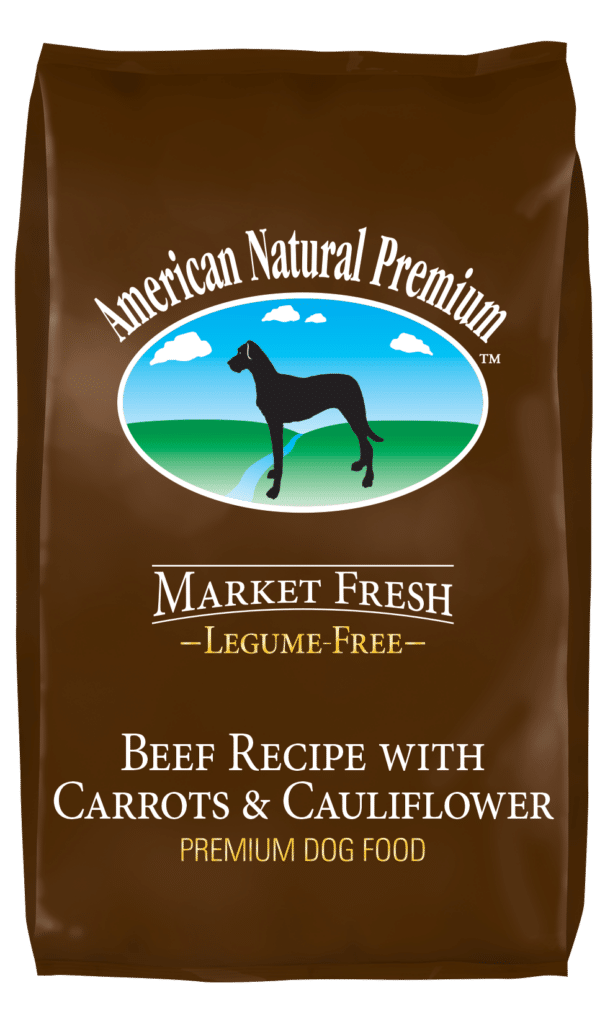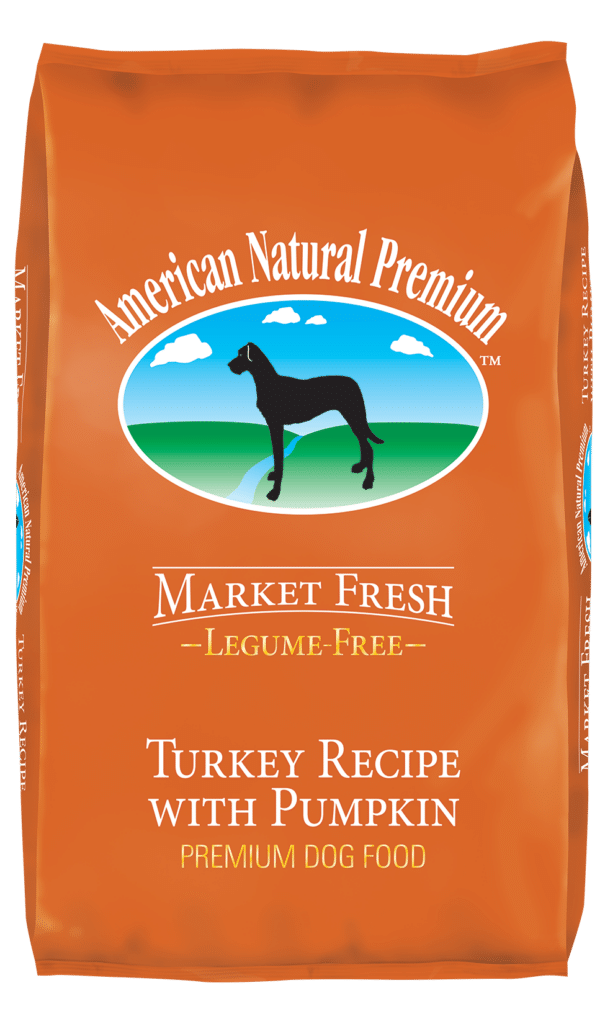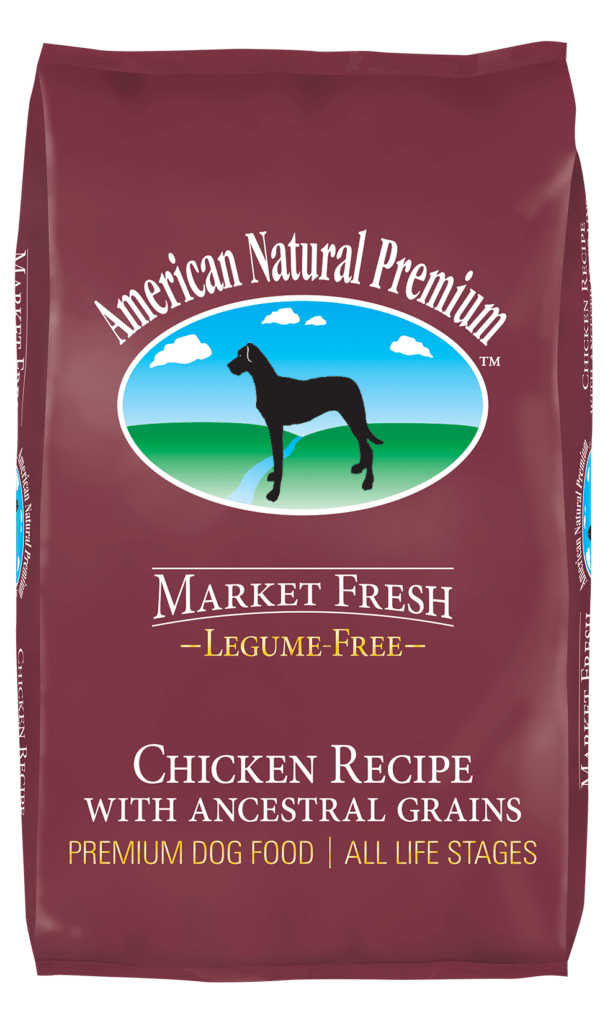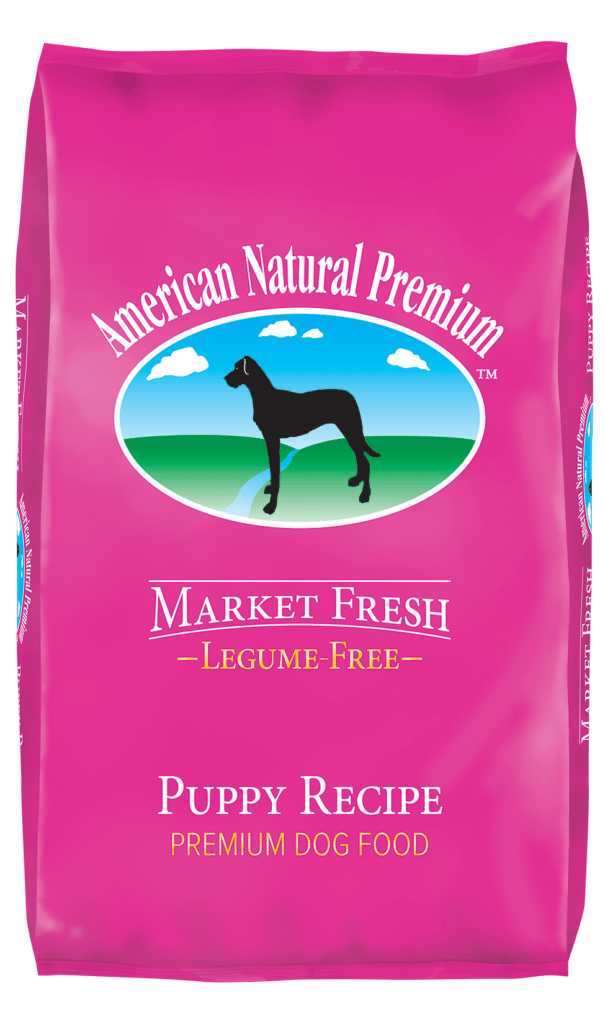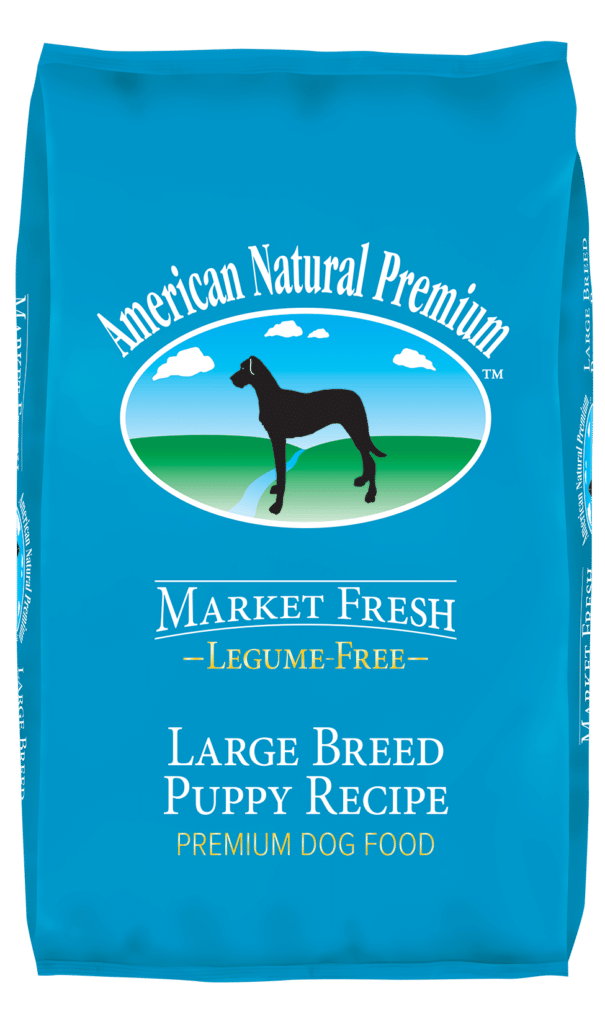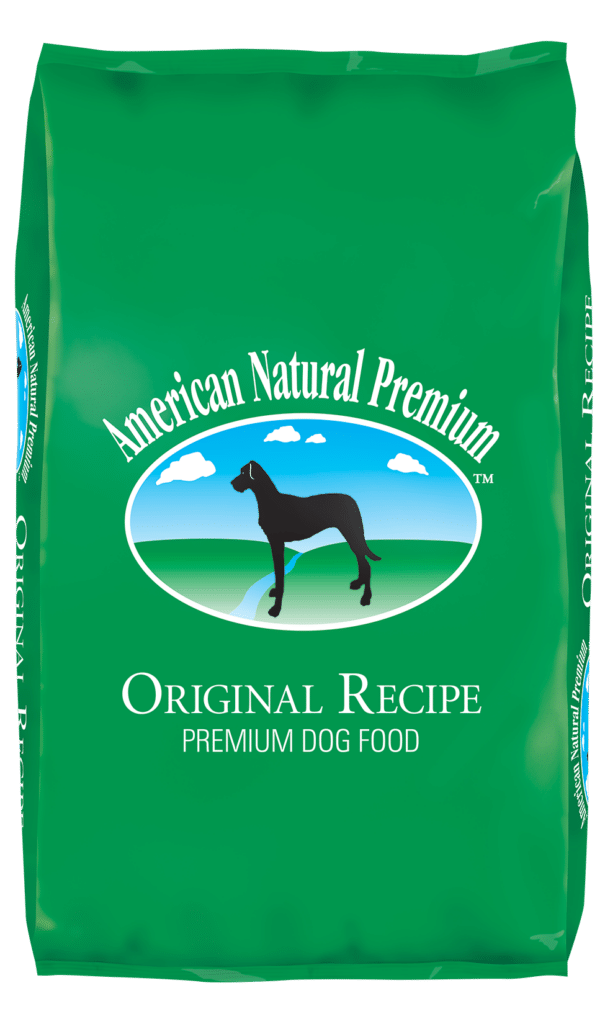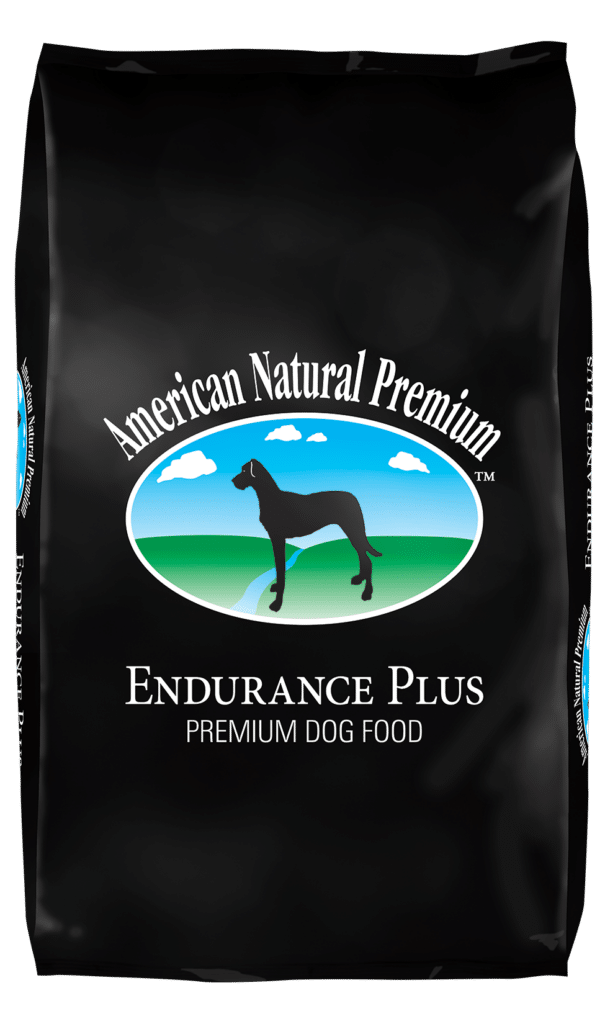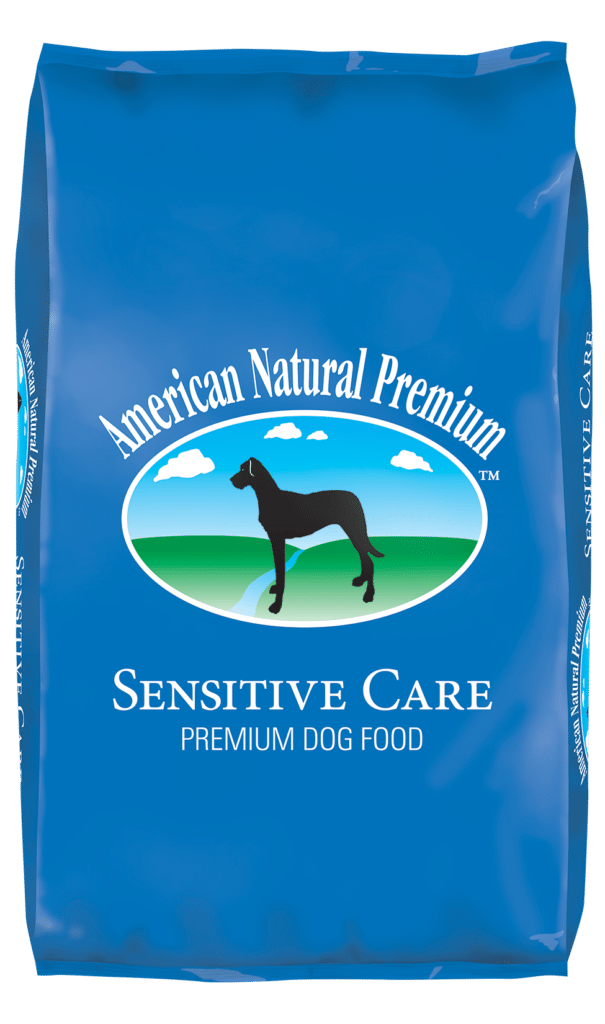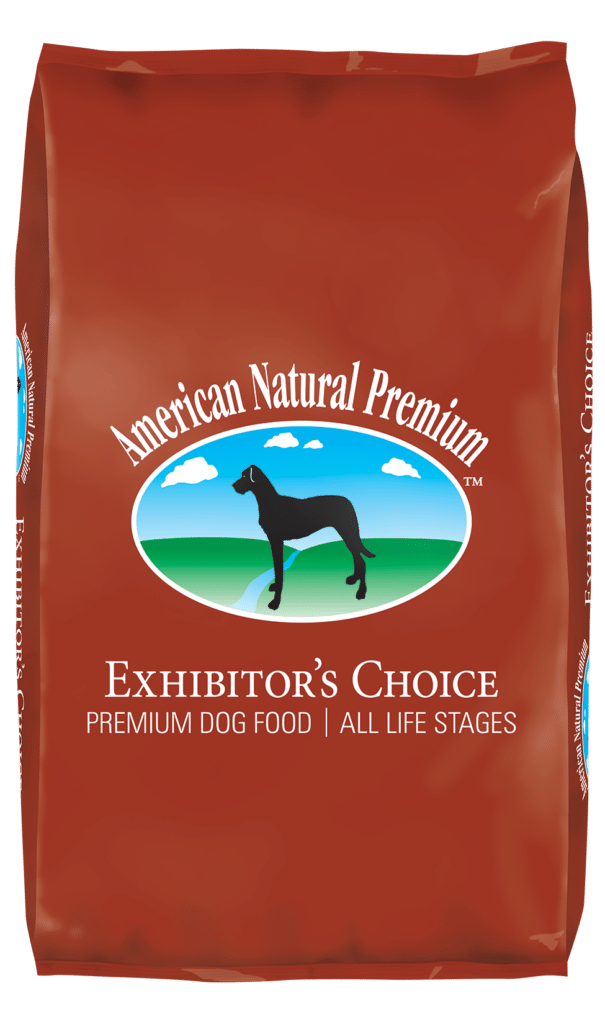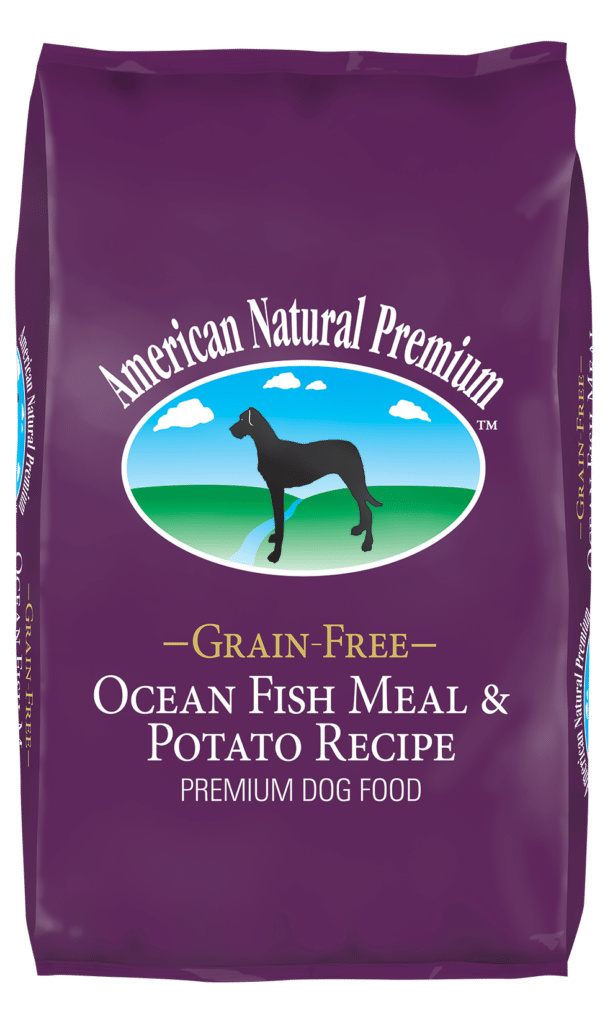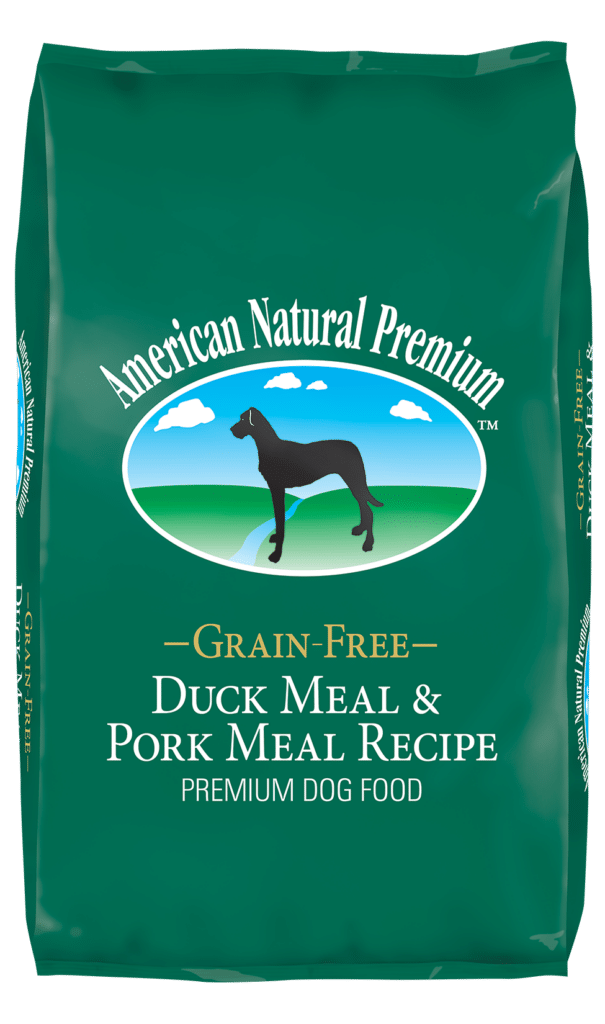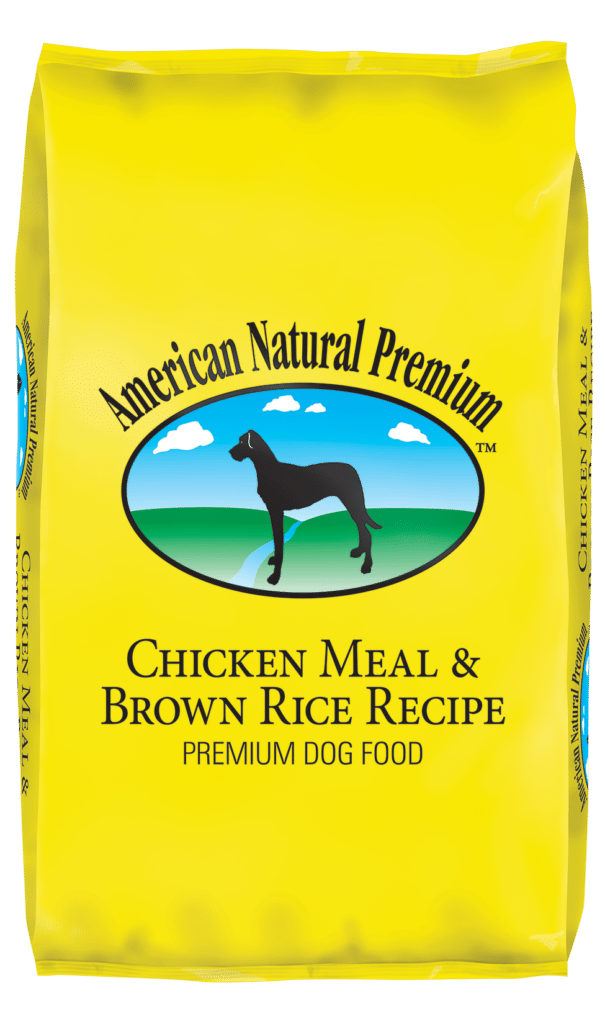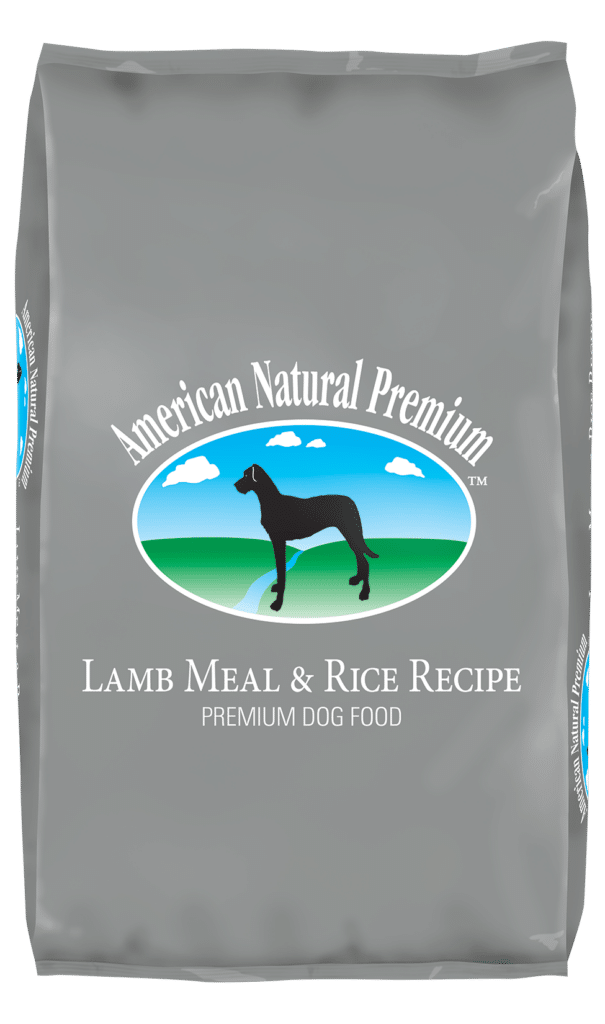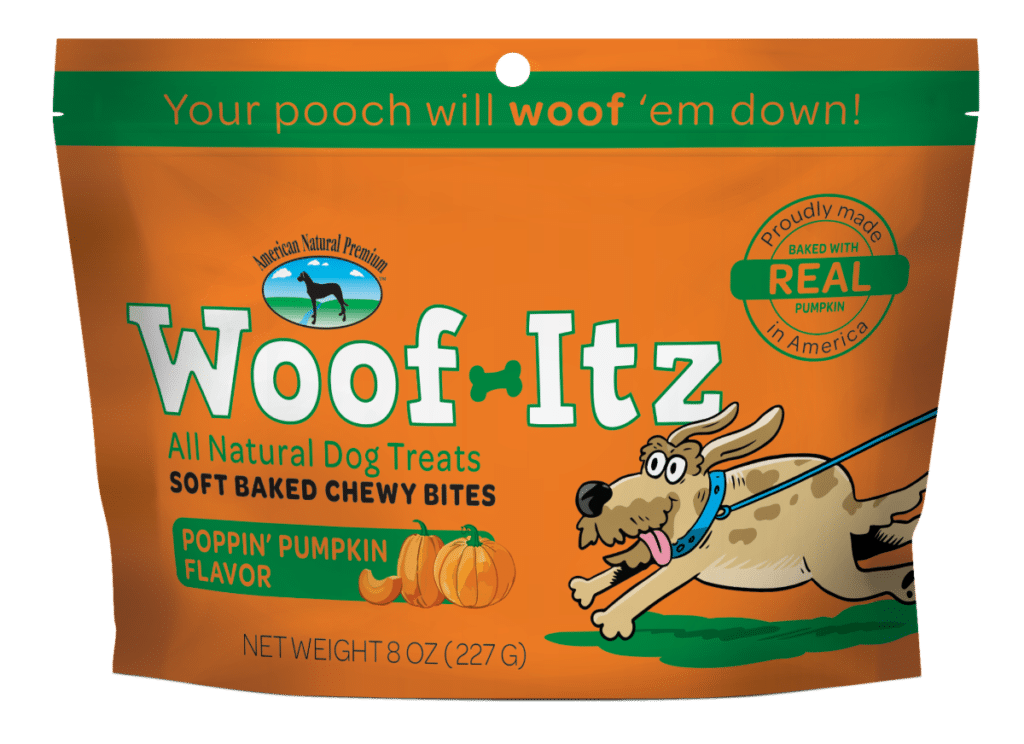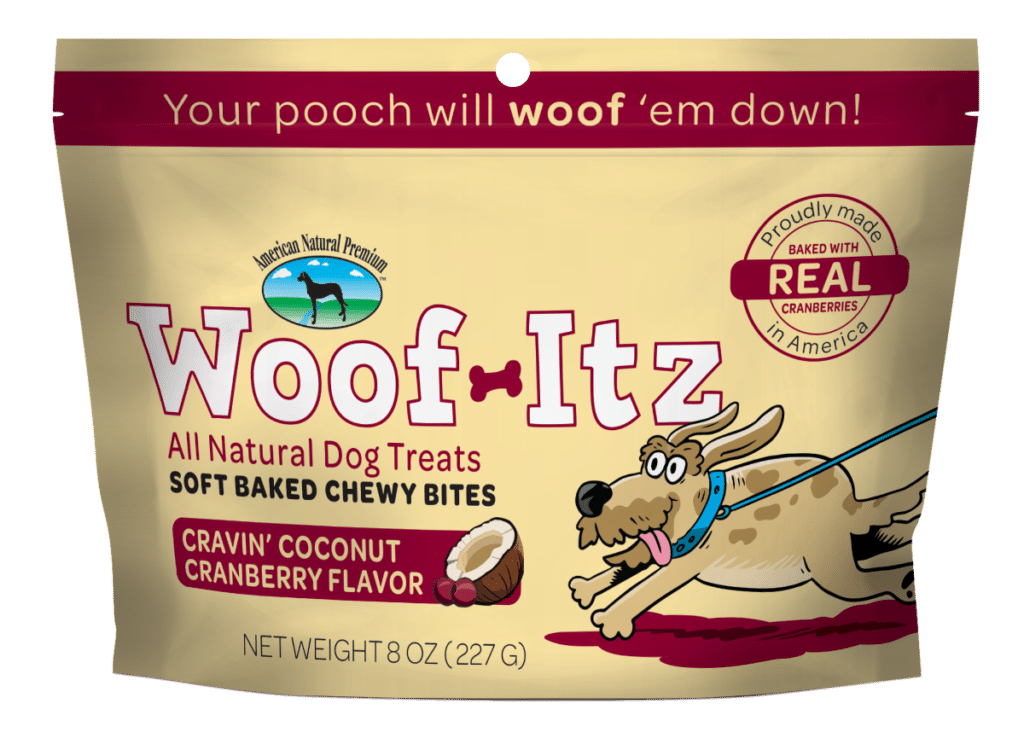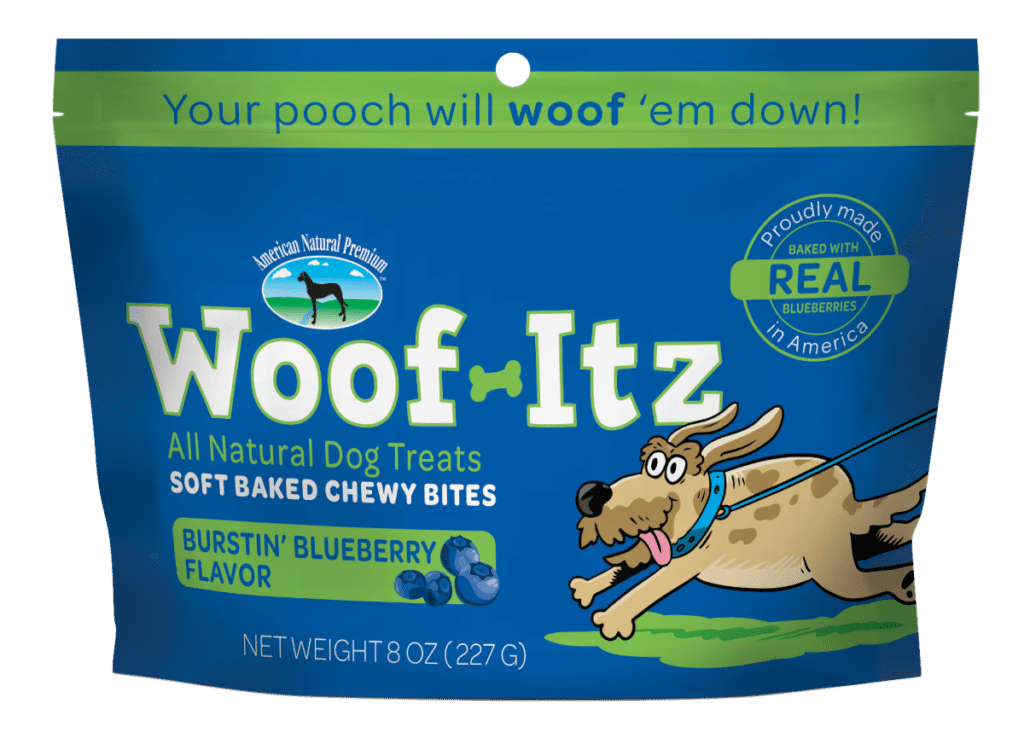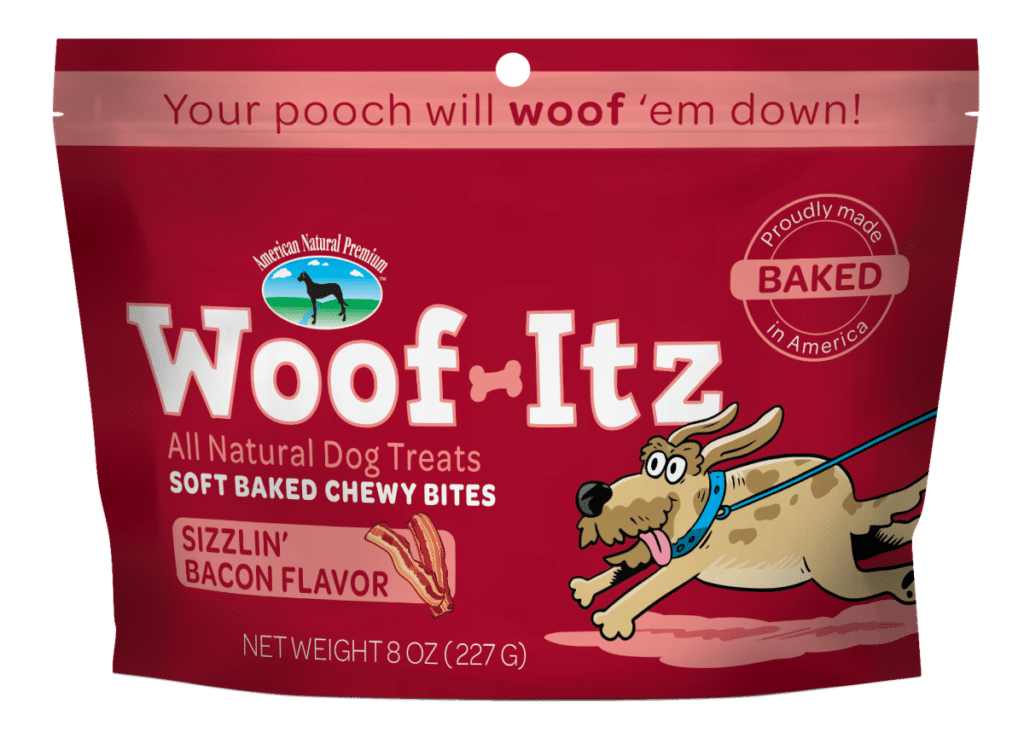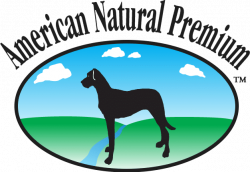Home » German Shepherd Breed Guide

The German shepherd dogs (GSD) are a loyal, intelligent, and versatile breed. Part of caring for these hardworking, devoted dogs requires special attention to their diet.
Factors such as age, activity level, and underlying health conditions can significantly influence a GSD’s dietary needs. The only thing that remains constant is their need for premium, high-quality, and nutritious dog food.
Today, we dive deep into the dietary needs of German shepherds. This comprehensive guide will cover everything from nutritional requirements based on age to special considerations — and why American Natural Premium stands out as one of the best dog food for German shepherd puppies and adults.
Dietary Needs of GSD Puppies
German shepherd puppies are highly active and growing fast. They generally need between 80 and 90 calories per pound to fuel their growth.
- Protein and Fat Requirements: During their first year, German shepherd puppies require a steady supply of protein and fat for healthy muscle and bone development. The recommended amount is about 22% to 26% high-quality protein and around 8% to 15% fat on a dry-matter basis.
- Feeding Schedule and Portions: German shepherd pups can be fed a total of 1.5 cups of dry kibble between four to six times a day until the 12-week mark. At six months, the portions can be increased gradually while the frequency is decreased.
- Nutritional Supplements for Growth: Omega-3 supplements are recommended for cognitive development and better coats. For pups with sensitive stomachs, digestive enzymes and probiotic supplements can help.
Common Mistakes To Avoid
Despite the best intentions, it’s easy to make mistakes when feeding a German shepherd puppy. Here are some common errors to avoid:
- Overfeeding, especially with treats
- Feeding processed meats for protein
- Only feeding unbalanced homemade food
- Not reading dog food labels
- Ignoring necessary water intake
Transitioning to an Adult Dog Diet
German shepherd pups generally only stay on a puppy diet until they are six months old, rather than a full year. Large breed dogs transition to an adult diet early on to avoid growing too fast and potentially developing bone or joint problems.
Choosing the Right Adult Dog Food
It is best to opt for a high-quality, nutrient-dense food like American Natural Premium that supports their active lifestyle and caters to their susceptibility to certain health issues. The best dog food for German shepherd adult dogs should have:
- 20% to 25% protein
- 10% to 15% fat
- 3% to 7% fiber
Monitoring Weight and Adjusting Portions
The amount of food for adult GSDs will depend on their current weight. As such, regularly monitoring your German shepherd’s weight is crucial to ensure you are feeding them the right portions.
This can be done through routine vet check-ups, home weigh-ins using a pet-specific scale, and visually assessing your dog. Additional treats or snacks that you give your dogs throughout the day should always be included when adjusting their portions or diet.
Special Considerations for Working German Shepherds
Working German shepherds will need to consume more calories per day. Compared to inactive GSDs, who are recommended 1,272 to 1,540 calories per day, working dogs like those in K9 units will need 1,740 to 2,100 daily.
- Protein and Fat Requirements: Active or working GSDs will also need to eat more protein. The recommended amount for highly active dogs is at least 26% protein.
- Optimal Ingredients: If you want to avoid the worst dog food for German shepherds, then look for dry kibble dog food that lists muscle meat like beef, chicken, or fish among its top ingredients. More importantly, avoid foods that contain added sugars.
- Dietary Supplements for Joint Health: Glucosamine and chondroitin supplements are highly recommended to protect their joint cartilage and reduce inflammation.
Tips for Maintaining an Ideal Weight
Maintaining an ideal weight for your German shepherd is crucial to their overall health and longevity. Here are some essential tips to help achieve this balance:
- Balanced Diet: American Natural Premium is an excellent choice for this requirement, formulated with all the necessary nutrients for your dog’s optimal health.
- Controlled Portions: Overeating can lead to obesity. Limit freely giving dog treats, or choose treats that are carefully formulated and portioned.
- Regular Exercise: Regular and consistent exercise is key to maintaining an ideal weight.
- Health Check-ups: Your vet can monitor weight gain and provide personalized nutritional advice considering your dog’s condition.
- Hydration: Water aids digestion and nutrient absorption, ensuring your dog gets the most out of their meals.
Senior German Shepherd Dietary Needs
Recognizing the signs of aging early can help ensure that your German shepherd transitions smoothly into their senior years with the right diet. Signs include decrease in activity levels, graying hair, increased sleep, and reduced mobility.
Special Senior Dog Food Considerations
Senior dogs need more protein to prevent loss of muscle mass. The best dog food for a senior German shepherd dog should contain a higher protein to calorie ratio, ideally at least 75 grams of protein for every 1,000 calories.
Switch to senior dog food formulations, as these would already be adjusted to their nutrient needs, level of digestibility, and additional health requirements. American Natural Premium addresses all these needs effectively, considering the specific dietary needs of senior German shepherds.
Managing Weight and Metabolism
Older German shepherds require fewer calories and better-controlled food portions due to slower metabolism. Choose lower-calorie foods with high fiber content to help maintain a healthy weight and support digestion. Less treats will also help prevent obesity issues or joint problems.
However, take note that increasing fiber intake too much can also be dangerous. Excessive fiber intake can reduce nutrient absorption for senior dogs.
Supplements for Joint and Cognitive Health
Regular intake of certain supplements — particularly glucosamine — will be more important for joints and bones, especially for large breeds like GSDs. Type II collagen and methylsulfonylmethane (MSM) are also good supplements for joints.
Meanwhile, omega-3 fatty acids, medium chain triglycerides (MCTs) or coconut oil, B vitamins, and antioxidants are recommended for cognitive health.
Common Dietary Issues and Solutions
German shepherds often struggle with several diet-induced issues. Making small changes to their diet goes a long way to managing these issues.
- Food allergies and sensitivities: This is relatively easy to resolve by eliminating the allergens from their diet and switching to hypoallergenic dog food for German shepherds.
- Gastrointestinal or digestive problems: These can be combated with the help of easily digestible foods and maintaining a strict feeding schedule. Avoiding a high-fat, high-sodium diet is also important.
- Obesity or overweight issues: A consistent feeding routine and carefully monitored portion sizes help in managing weight issues. Easily digestible or high-fiber foods may also help if the weight problems are due to slow metabolism.
Special Considerations for Health Conditions
German shepherds are prone to certain health conditions like hip dysplasia and degenerative myelopathy, necessitating special dietary considerations. A diet rich in omega-3 fatty acids, glucosamine, chondroitin, and MSM helps support joint health and mitigate some symptoms of these conditions.
Fish oil supplements are a great source of additional omega-3. These — along with vitamin E — are also recommended for GSDs with skin or coat-related issues. Antioxidants are another important consideration. These not only help with skin issues but also protect their immune system, reducing the risk of chronic diseases.
For dogs with diabetes or pancreatic issues, enzyme supplements are recommended. Dog food and treats should also be low in fat and high in digestibility.
Creating a German Shepherd Diet Plan
Diet plans are relatively simple if you stick to specially formulated dog food for German shepherds like American Natural Premium. It’s just a matter of sticking to meal times and controlling portions.
Take note that creating a customized diet plan for your German shepherd is crucial to ensure their nutritional needs are met. Below are basic diet plans you can adjust based on your GSD’s age, weight, and activity level:
- Puppies: Between one to 1.5 cups of dry kibble, split into four to six meals per day.
- Adults: About 2.75 to three cups of dry kibble, spread over two to three meals per day for 50-pound dogs. This can go up to 5.25 cups per day for dogs weighing 90 pounds.
Additionally, GSDs require about an ounce of water per pound of body weight each day to stay healthy.
Feeding Tips: Treats and Dangerous Foods
For treats and snacks, opt for nutritious and high-protein, highly digestible options like the American Natural Premium dog treats. Treats should never more than 10% their daily total caloric intake to prevent weight gain.
Avoid foods that are potentially harmful to German shepherds and dogs in general. These include chocolate, onions, grapes, avocados, and products containing the artificial sweetener xylitol. Macadamia nuts, horse chestnuts, and black walnuts are also dangerous for dogs.
As much as possible, avoid feeding your dog table scraps or human food, which can cause digestive issues and nutritional imbalances. Stick to high-quality dog food like American Natural Premium instead.
Homemade vs Commercial Dog Food
Although homemade food allows you to control the quality and variety of ingredients, calculating the right balance of nutrients can be a challenging task. On the other hand, specially formulated commercial dog food for German shepherds — such as American Natural Premium — is already designed to meet the complete dietary needs of your German shepherd in the correct proportions.
A mix of both is the ideal approach — providing the variety of a homemade diet, yet still ensuring your dog’s nutritional needs are met with convenience.
Final Thoughts
Maintaining the vitality and well-being of German shepherds hinges on their diet and feeding. Proper nutrition and a well-balanced diet not only gives them energy but also supports their cognitive functions and total growth. For optimal dog health and dietary plans, consulting a veterinarian is highly recommended.
Give your canine companion the best dog food for German shepherd dogs with American Natural Premium dog food. Contact us today for bulk order inquiries.
